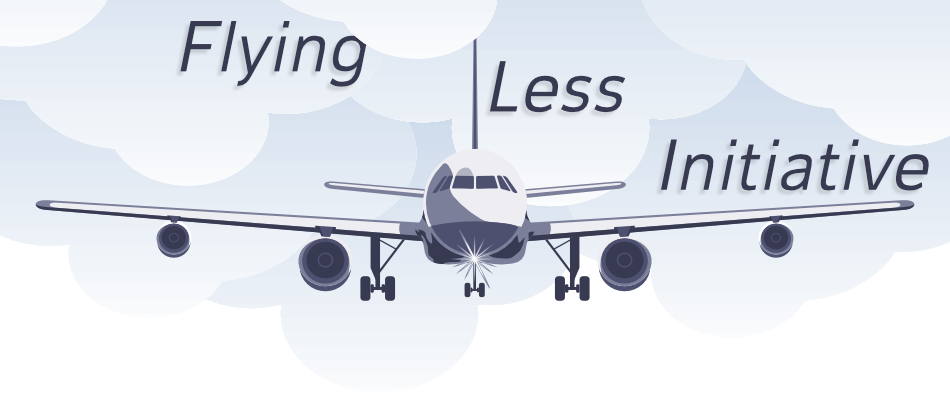Flying Less Initiative

Flying Less Pledge
As part of the Hessen-wide initiative "CO2 neutrale Landesverwaltung", scientists and students at the Justus Liebig University Giessen (JLU) established the working group Klimaneutrale Uni. The objective of this group is to propose adequate measures for achieving climate-neutrality of JLU. The Klimaneutrale Uni is currently working on developing measures related to energy-efficient facilities, reduction of academic flights, sustainable management of green areas and university canteens, and sustainability in education, among others. The Center for International Development and Environmental Research (Zentrum für internationale Entwicklungs- und Umweltforschung, ZEU), launches the Flying Less Initiative to stimulate the choice of sustainable travel alternatives and reduce the number of academic flights.
What is this about?
Atmospheric carbon dioxide (CO2) concentrations have been increasing from 280 ppm in the preindustrial age to currently 410 ppm (August 2019). This increase is the main driver of climate change, whose effects are already measureable: melting arctic sea ice, increased likelihood of wildfires and severe storms as well as reduced biodiversity and destruction of habitat in coastal areas. However, this is only the beginning of serious irreversible impacts, which may result in ecosystem breakdowns, national security issues and military conflicts if not stopped.
One major source of the rising CO2 concentrations is flying. For example, emissions caused by a flight from Frankfurt to Los Angeles equal the average emissions caused by driving a car for three years. As science works across borders, many scientists fly regularly. A study of the ETH Zurich showed that almost half of the emissions of the ETH is due to flying. The picture looks a bit different at the JLU. The proportion of CO2 emissions caused by flying is likely to be lower, due to the high number of old buildings which produce large emissions for heating. However, this does not mean that flying only plays a minor role in producing CO2 emissions; it rather means that the JLU has to become active in a range of fields to become climate neutral.
Flying does not only contribute to climate change through CO2 emissions. Planes emit nitrogen oxides (NOx) in the upper part of the troposphere, stimulating the formation of ozone with a greater global warming effect than CO2. Flying less will therefore not only contribute to JLU becoming carbon neutral, but also climate neutral!
What do we want to achieve?
With this pledge we commit ourselves to simple rules-of-thumb which will help us to fly less. The aim is to create a climate neutral working culture and to show that we, as academics, care about climate change. We recognise that communication, exchange and personal meetings are essential to work in science. Nevertheless we think that there is scope for reducing our emissions while keeping these values up.
This agreement is inspired by similar initiatives at other universities, for example, the Humboldt Universität Berlin as well as the University of Potsdam. These initiatives are in line with the “not under 1000” call from Scientists 4 Future. This voluntary commitment has been signed by over 4,100 scientists in Europe (October 2020) and is designed as a voluntary agreement not to fly to destinations which can be reached within 12 hours with other means of transport.
We invite colleagues at JLU to join our effort and sign this pledge. Also, we encourage the university’s Executive Board to promote this pledge and come up with a university-wide travel policy to reduce flying at JLU. Moreover, to support this initiative, we suggest that the University should:
- Provide individual feedback to all travelers on how much CO2 they produced with their business trips.
- Publish overall travel-related CO2 emissions per institute per year.
- Increase the number of videoconference facilities across all university buildings.
This initiative is aimed at flying less. However, we acknowledge that other commitments, such as travelling to work on foot, by bike or public transportation instead of using a private car, can also contribute to a reduction in travel-related greenhouse gas emissions.
